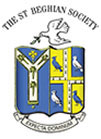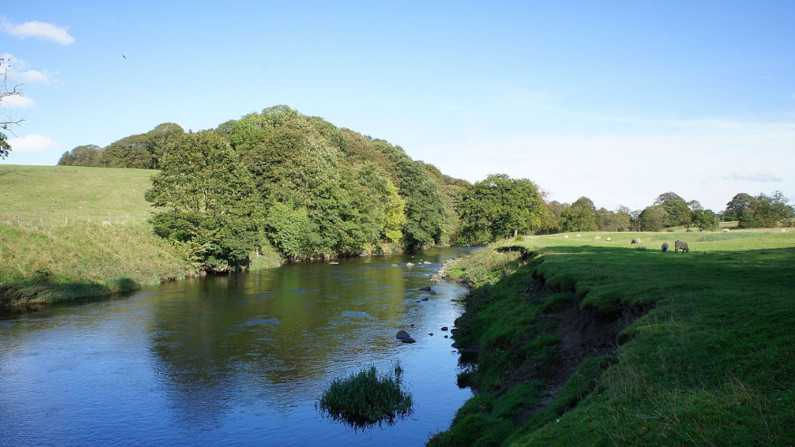|
 |
The Old St Beghian | |
| July 2024 | |||
George Robson (FN 57-64) has contributed the following.
The bend in the river.
“During the 1950s and 1960s each pupil had a decision to make: either choose to join the Combined Cadet Force (CCF) or the scout group, run single-handedly by Anthony 'Spiv' Dearle, who was known as Patrol Leader.
However, if one chose the scouts only two years maximum was allowed after which one had to transfer for the remaining years at school to the CCF. Those that chose this option therefore had little chance of being promoted within the CCF beyond at the most lance corporal.
On arrival at the school in 1957 I chose to join the scouts as the thought of being a soldier rankled me!
At the end of each summer term both the CCF and the scout troop travelled to set up camp for a full week. In 1958 the CCF went off to the HQ of the Durham Light Infantry at Brancepeth a few miles out of Durham City, whilst we scouts set forth for a field hired from a farmer at the small village of Prior Scales a few miles from Calder Bridge. There were about thirty of us.
A bus picked up our personal belongings and all the gear associated with scouts camping and of course ourselves before setting off for Prior Scales. It seemed odd that Spiv was not on the bus but chose to travel independently on his beloved motorbike. But in due course we found the reason for this!
We arrived at our destination to find Spiv already there waiting for us and the first thing we did after unloading the bus was to dig a latrine. Spiv explained how to do this and then delicately explained how to use it.
Five large tents were then erected and one smaller one for Spiv. Then duties were allocated. Mine involved going to the nearby farm each morning for milk, eggs and the like following which I was to join the catering gang.
Each morning after breakfast we gathered around a flagpole that we had erected in the center of the camp for morning prayers, during which a union flag was unfurled. One morning when one of us stepped forward to pull the unfurling rope at this climax of the service nothing happened, for whoever had wrapped the flag had made a pig’s ear of the task. All we heard from Spiv was a plaintive ‘Oh!’ and the unfurling was correctly achieved at the end of the service.
Spiv had produced a programme for the week which included the usual scouting activities of cross-country treks, knot tying, lighting fires, orienteering, climbing etc. One morning we all walked the mile or so to Calder Abbey where Spiv gave a talk. The facts that the abbey was founded by Ranulph de Gernon in 1142 and that it was Cistercian were completely lost on us. Our interest was more in the trout that proliferated in the section of the river that runs alongside the abbey.
I am sure that there will be other Old Boys who have memories of CCF and Scout camps and whose recollections could feature in future editions of our Bulletins.”
One evening ‘PL’ Lever and his wife Molly drew up and presented us with a large box of goodies before wishing us well and returning to St Bees. Nice of them. But during that brief visit Spiv was absent for he had mysteriously driven off on his motor bike for a couple of hours as he did each evening. Much later we discovered he used these hours away from us visiting a hostelry, The Stanley Arms, in Calder Bridge because ‘he liked his pint’. Maybe we should have guessed this for we already knew that Spiv habitually made the less than five minutes’ walk from his room in Lonsdale Terrace to The Albert pub. And so, it eventually became clear why Spiv had travelled on his motorbike to Prior Scales independent of the rest of us!
But the highlight amongst the memories I have of the Prior Scales camping week centres around the river Calder and ‘the bend in the river’. We were camped on a section of the river’s bank where it curved sharply and - joy of joy - on the second day we learned that just around the corner a troop of girl guides had set up their own camp.
And less than quarter of a mile away!
This evoked our very intense interest and so Spiv’s instructions to us to keep well away from the guides went straight in one ear and out of the other!
No doubt the guides’ Patrol Leaders had done likewise to their charges.
We noticed that although the land between the two camps was open ground, on the opposite bank it was very different – thick bushes and dense foliage. And the river between the banks was shallow at this point in its course and easy to plodge across.
Therefore it was quite feasible for one to get across the river, move through the foliage and spy on the guides. Those of us who did this were in for a treat because apart from other intimacies the girls had put up a lengthy washing line to air-dry their clothes and so we got an education in the styles and variety of, let’s say, young ladies’ undergarments!
There were rumours that some of us set up illicit one to one meetings with some of the guides but this I cannot verify. But what I can verify is that once or twice I saw suspicious movement in the bushes on the far bank which suggested the guides were as interested in us scouts as we were in them. As with the guides we too had a washing line displaying intimate apparel!
More than sixty years have passed since all of this happened and I have more than once thought about returning to the site to dwell on the memories. Maybe I will one day.
Further Photos may be seen here.
Home
The St Beghian Society
St Bees School,
St Bees, Cumbria, CA27 0DS.
Tel: (01946) 828093 Email: osb@stbeesschool.co.uk
Web: www.st-beghian-society.co.uk
![]()
